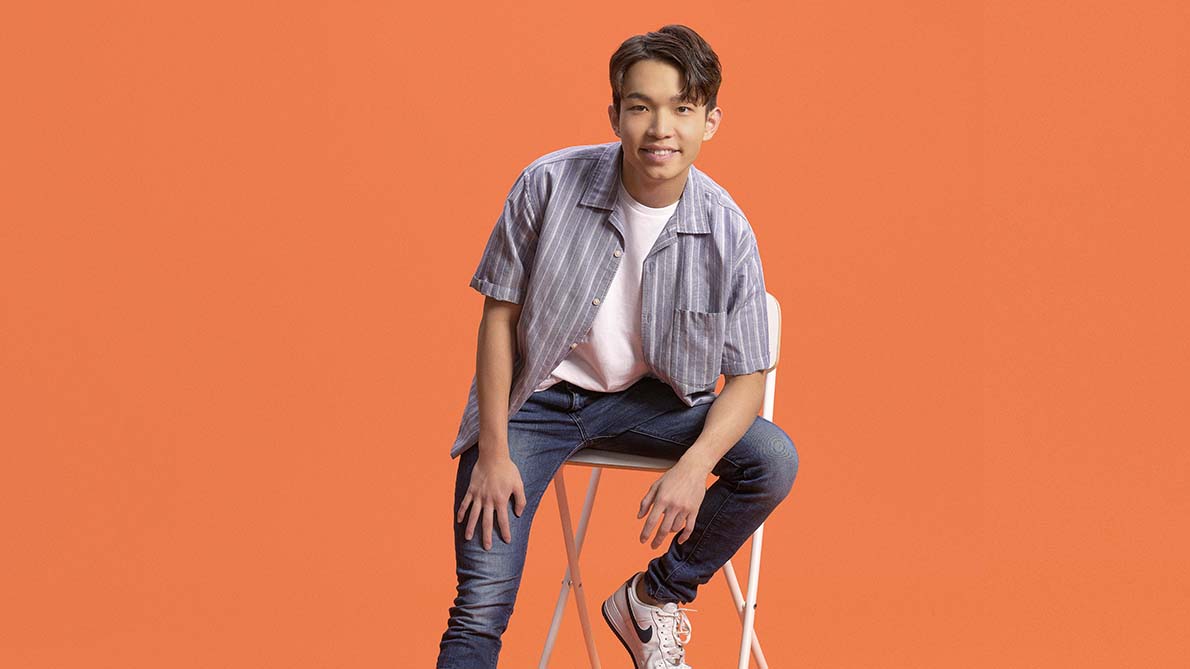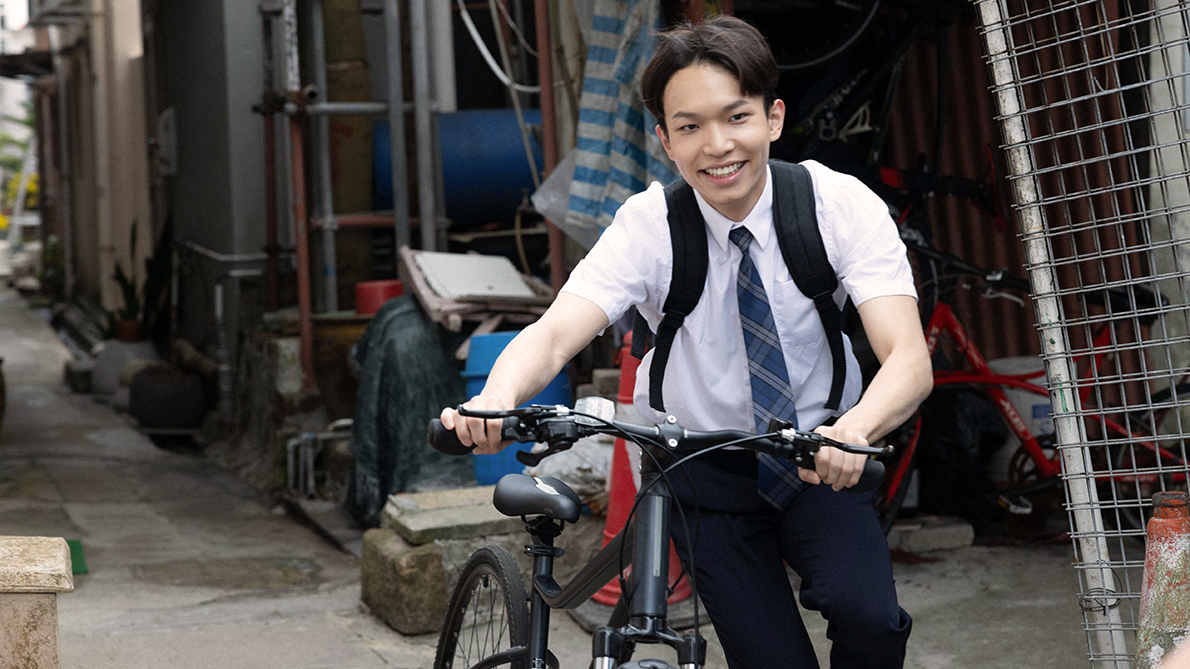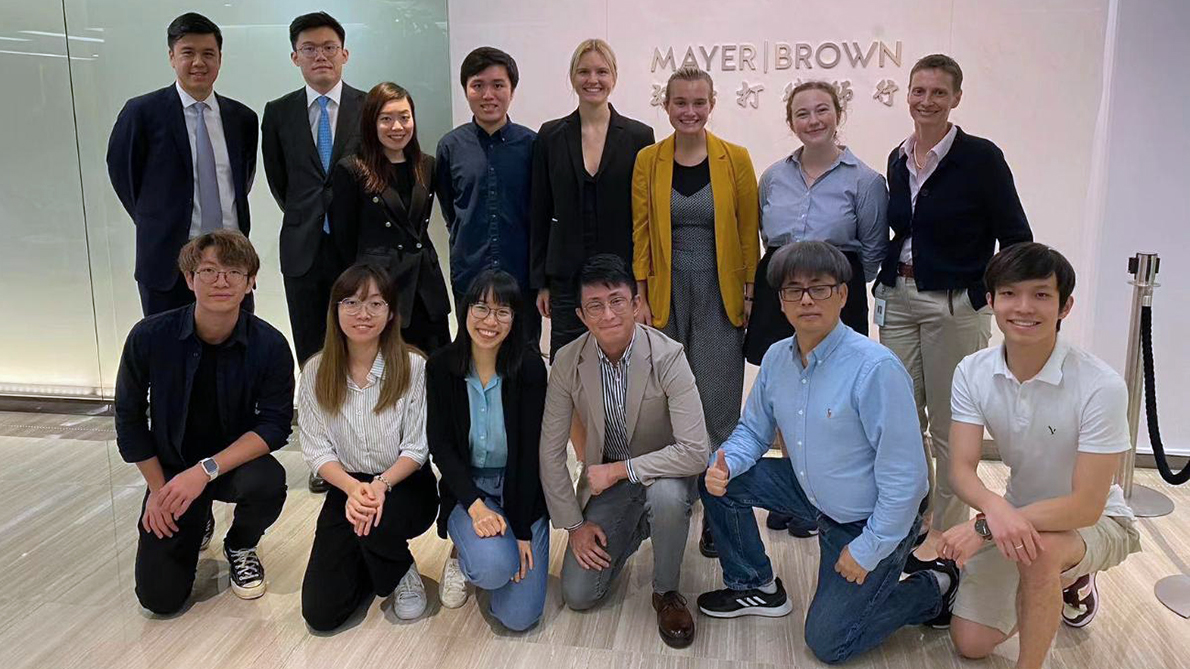Listen Up: This HKUer Believes That Deafness Need Not Be Debilitating
Marco Ng (Bsc(IM))

Remember the restrictions and rules implemented during the COVID-19 pandemic? And the daily inconveniences we had to endure, like wearing face-masks? Now imagine being in that situation and you’re a deaf person who relies on lip-reading to understand what’s being said to them.
Marco Ng is deaf and has faced challenges like this all his life. It is a testament to his vision, ambition and persistence that he is also a final-year student at HKU pursuing a BSc degree in Information Management, having already completed a sub-law degree.
When asked how he managed to complete his sub-law degree studies despite the lack of sign language interpretation support, Marco recalls, “I relied almost entirely on myself to understand the concepts, and I’m incredibly grateful for the notes and support from my classmates.”
However, during the pandemic, lecturers wore masks, which made lip-reading almost impossible. “Despite giving my full attention during three-hour law lectures, I could only catch about half of what was said unless the lecturer spoke very clearly with precise enunciation. This experience taught me the importance of adequate support and accessible communication in education,” he says.
Which is why studying at HKU has made a world of difference to him. “The biggest factor that has supported my academic progress at HKU was having access to sign language interpretation services,” he says. During his lectures, there are two Sign Language interpreters present – one positioned in front of him and signing, and the other sitting next to him and jotting down keywords.
“Other tertiary institutions and universities do not typically provide such support, so I am very appreciative that HKU offers it. Compared to my previous two years of law study, I can now understand lectures in real time instead of struggling after class to grasp key points,” he says, adding, “I’m also able to participate more actively in group discussions and truly embrace the Socratic learning style on some lectures. These changes have given me more time and energy for other activities outside of academics.”
His interest in how the law can affect the lives of deaf people came in part from when he took part in the movie “The Way We Talk”, and met a sign language advisor who had graduated from HKU with an LLM degree in Human Rights and was actively involved in legal advocacy for the deaf community.
“Meeting her solidified my resolve to become a deaf advocate,” he says. The spectrum of people living with deafness and hearing impairment is broad, meaning that their communication needs vary widely and cannot be solved by technology alone. “Even today, many deaf or hearing-impaired people face barriers in almost every facet of daily life, underscoring the need for more advocacy and systemic change,” he notes.
With his earlier training in the law, Marco has been mainly involved in legal issues, such as the Hong Kong Sign Language on Legal System Fundamental project, which focused on basic legal system concepts, where he learned that many deaf and hearing-impaired individuals in Hong Kong face major information gaps during trials. “This is neither humane nor fair,” he says. “Misunderstandings and inadequate communication support can result in longer, more costly trials for the deaf or hearing-impaired. This issue extends beyond court settings, affecting education and public services.”
He considers himself fortunate to have grown up in a bilingual environment under the Sign Bilingualism and Co-enrolment Education Programme with sign language support from kindergarten through high school. “This inclusive programme didn’t just help me academically; it also taught my hearing peers how to engage with Deaf individuals naturally. I see that as a “true inclusion,” he says.
Which is why he also participates in the Deaf Classroom Hong Kong’s Flip Court project, where he shares insights with legal practitioners and law students on how to effectively communicate and work with deaf clients, promoting justice and understanding.
Determined to do more to build an inclusive society, he also joined the non-governmental organisation EO Matter’s “Equal Opportunity Youth Ambassador Scheme”. The scheme allowed him to explore in-depth issues related to equal opportunities and meet other like-minded individuals. “Promoting an anti-sexual harassment message on campus with other students was the most memorable activity. It gave me the opportunity to put the legal knowledge I learnt into practice,” he says.
In particular, he notes that HKU has been an inspiring bridge to the world, as it has significant resources and is well-connected on a global level. It provides a range of support, from start-up activities to scholarships and public lectures featuring experts in various fields. “I especially enjoy attending lectures about law and participating in start-up activities. My peers at HKU are also very international and highly talented. Being part of such a vibrant community has opened my eyes to diverse perspectives and new ways of thinking,” he says.
When asked how he plans to use the knowledge and skills he’s acquired to make a positive impact on society, he replies, “In a society that is often not deaf-friendly, I’ve seen first-hand the struggles and inequities faced by deaf and hearing-impaired people. So I feel a sense of urgency about advocating for their rights in education, the legal system, work opportunities and beyond. That’s really what drives me. You have to keep fighting for what you believe in and keep pushing your limits.”



